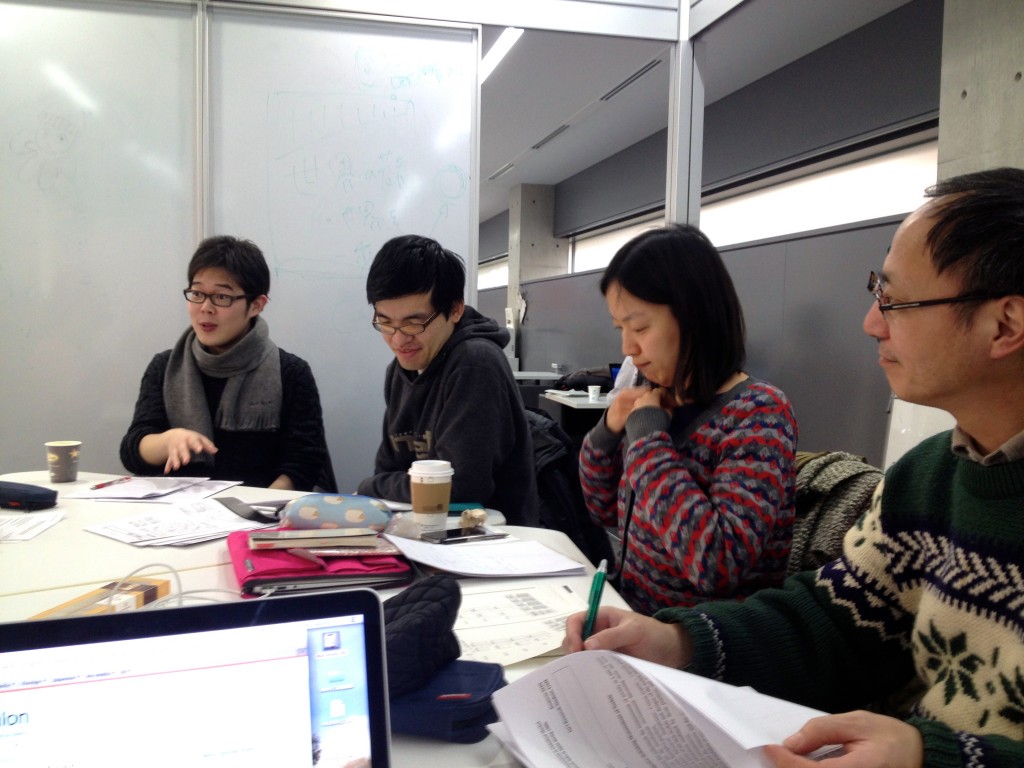Mr, Joonwoo Son, an international student of the GSII gave a presentation, Transformation of the National Measurements in Globalized Market: The Development of the Jyouhouka Index in Japan during 1980s.
A series of research has continued that understands the measurement of society as a part of socio-political practices forming and transforming public sector. On the one hand, prior research has mainly focused on the rise of the modern nation-state institutionalizing census, national statistics, and opinion survey in attempt to facilitate public mobilization. On the other hand, measurements introduced by contemporary market organizations (e.g. municipal evaluation and industrial index) have been explored as a force which facilitates trans-national market transactions and which at the same time competes with the local values and practices embedded in modern national and public institutions. However, the transitional process from the period in which the measurements have developed as a part of the institutionalization of the modern nation-state during the 19th and the early half of the 20th century to the period in which the measurements reformed the nation-states’ public sectors through marketization since 1980s has not been examined sufficiently. Joonwoo Son’s prospective doctoral research attempts to shed light on this transition by exploring the development of Jyouhouka Indexes in Japan since the late 1960s, especially focusing on its reconstruction during 1980s.
Jyouhouka (情報化, Informatization) Indexes, with their diverse definition of Information, have measured the extent to which a factor termed “Information” increases in its portion within a given society; the concepts, models, methodologies, and data composing the indexes have diversified and transformed since 1960s. Joonwoo Son attempts to examine how these diverse indexes represent “information” and “society” differently and to interpret transition between these discrete ways of representations within their socio-political contexts. He asks what kind of socio-political interactions, cultural systems, and local practices the production of Jyouhouka Index has been embedded since 1960s.
Moreover, by focusing on the emergence of Jyouhouka indexes as a main reference of the local and the national policy of Japanese government, Joonwoo Son takes the indexes as an exemplary case in which nation-states maintained their initiative in terms of producing social measurements. He is especially interested in exploring socio-political contexts which have decentralized Jyouhouka indexes from Japanese government. His pilot research points out that the reconstruction of Jyouhouka indexes during 1980s provides an adequate object of the case study (a) because the indexes has been based more and more on the approaches imported from America and IGOs instead of on the Japanese innate ones and (b) because those indexes has gradually shifted their object of measurement from the inter-local communications to the inter-organizational market transactions. Joonwoo Son’s prospective research will attempt to explain the relationship between these two tendencies within the context of macro socio-political changes. The presentation was followed by meaningful time of comments and discussions, mainly in terms of suggesting the macro socio-political events and trends needed to be studied further.
After the meeting, there was the farewell party of Joonwoo Son and the welcome party of Novella Gremigni at the restaurant “Moriwaka” near Hongo Campus and we continued our discussion there.
(Joonwoo Son: International student of the GSII)
